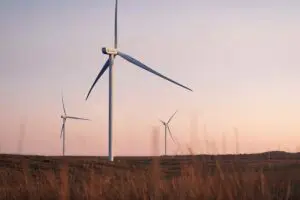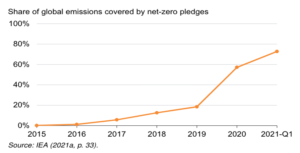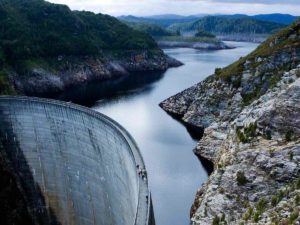According to one of Australia’s leading climate policy thinkers, there has been a lack of honesty from political leaders on the challenges facing the world due to climate change, and the problem has been presented to the public as more complicated than it is in reality.
CEO of ClimateWorks Australia Anna Skarbek told a panel at the All Energy Conference in Melbourne that because of a lack of action to reduce greenhouse gas emissions there is an ever diminishing window within which governments can act to avoid the worst impacts of global warming.
Skarbek said that the world has already missed its opportunity to stem greenhouse gas emissions in an incremental way, and as a result, governments will need to lead an increasingly rapid transformation of our energy systems.
“The decade we are in now was called the critical decade because by 2020, emissions were supposed to peak. They haven’t. We missed that moment. So the next decade is going to be termed the transformational decade, and what I took home from New York is that it is time to think exponentially,” Skarbek told the conference.
Skarbek cited examples as the role Australia can play in supplying a global energy export market and aiming for 700% renewable energy production, as ARENA CEO Darren Miller articulated to RenewEconomy, as the type of ‘exponential’ response needed.
“There is a tremendous opportunity for us to be a supplier of zero emissions energy to the world. It is a 700GW volume of solar and wind produce to produce hydrogen. A 700 per cent increase on the current large scale renewable energy supply. That’s exponential thinking,” Skarbek said
Climate change and energy policy have served as political footballs in Australia, and overseas, for well over a decade. Political leaders have used uncertainties in the energy transition, and the end of the fossil fuel industry, to raise the fears of voters.
Skarbek pointed to the difficult and prolonged debate over energy and climate change policy, reflecting that a major cause has been an unwillingness amongst leaders to engage in the complexities of the energy transition.
“There is a small group that are trying to position this as being more complex than it is. Its just been oversold and under imagined,” Skarbek added.
“One of the reasons, I think, for the loss in trust in institutions is this that there has been a lack of honesty about a vast number of issues, including in relation to climate and sustainability.”
“There’s been a fear amongst leaders to admit that it’s hard and that is a very big and exponential goal. But on the other side, there is a really great vision and view. We’ve been afraid of expressing the vision because we don’t want to articulate the steps of the transition,” Skarbek added.
It was a point echoed by Chloe Munro, former CEO of the Clean Energy Regulator and Professorial fellow at Monash University, who said governments should focus on making it easier for consumers, and providing reassurance that acting on climate change does not mean sacrificing a good way of life.
“It’s really about making it easy and making it real. A lot of the issues are around fear, and people finding political advantage of that fear. It doesn’t really help.”
“But we should be very afraid of unmitigated climate change. But to use fear as a motivator is quite depressing.”
Munro added that a key part of the answer was to help people understand and see what an energy transition can create positive opportunities in which people can participate.
“People need to see that they can be part of it. We can take for granted that net zero by 2050 is where we are heading. There will be jobs, and your home will comfortable and lovely to live in. It’s about both imagining it, but also making it real,” Munro said.










